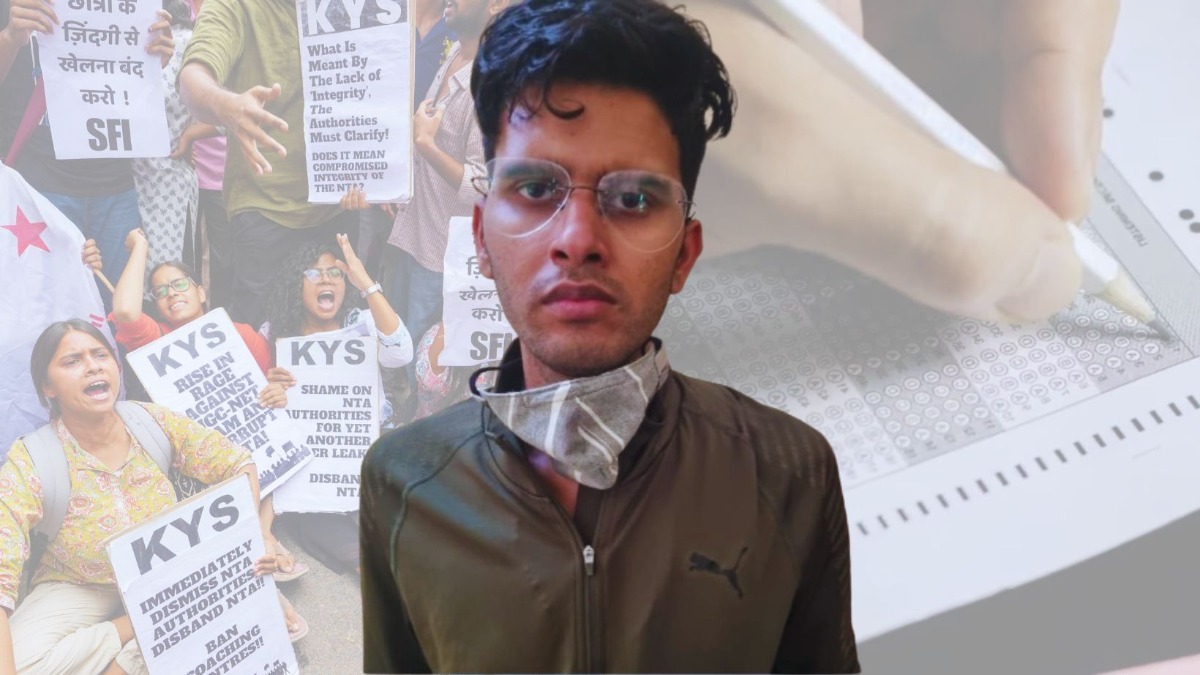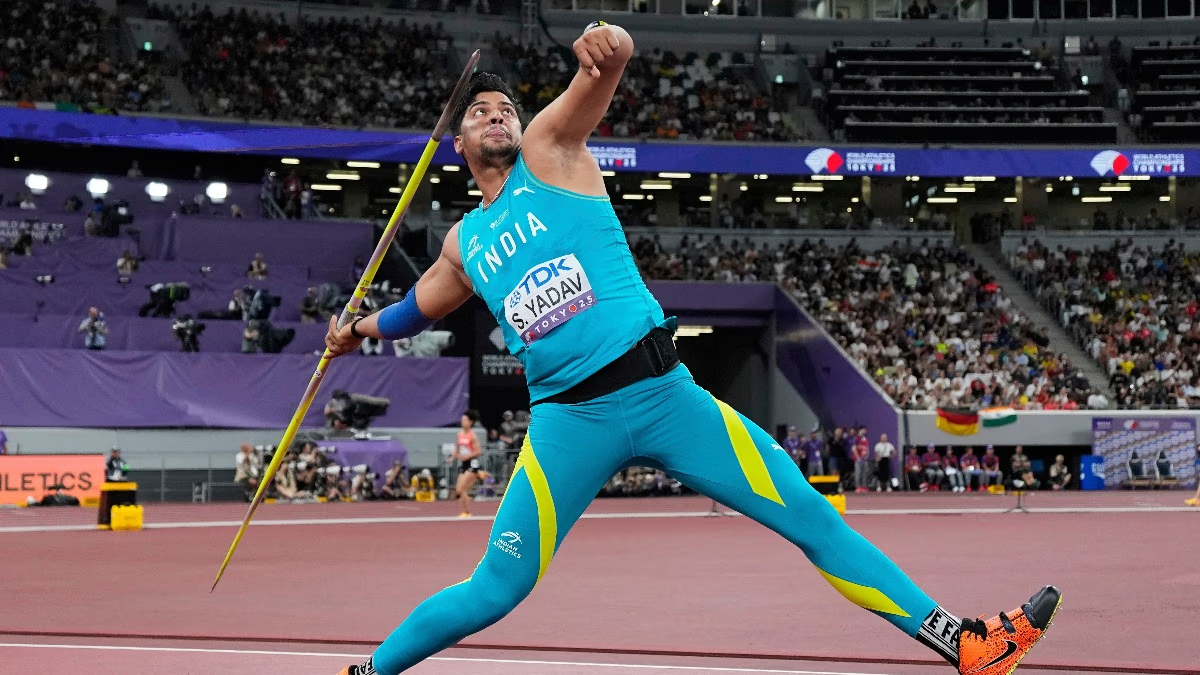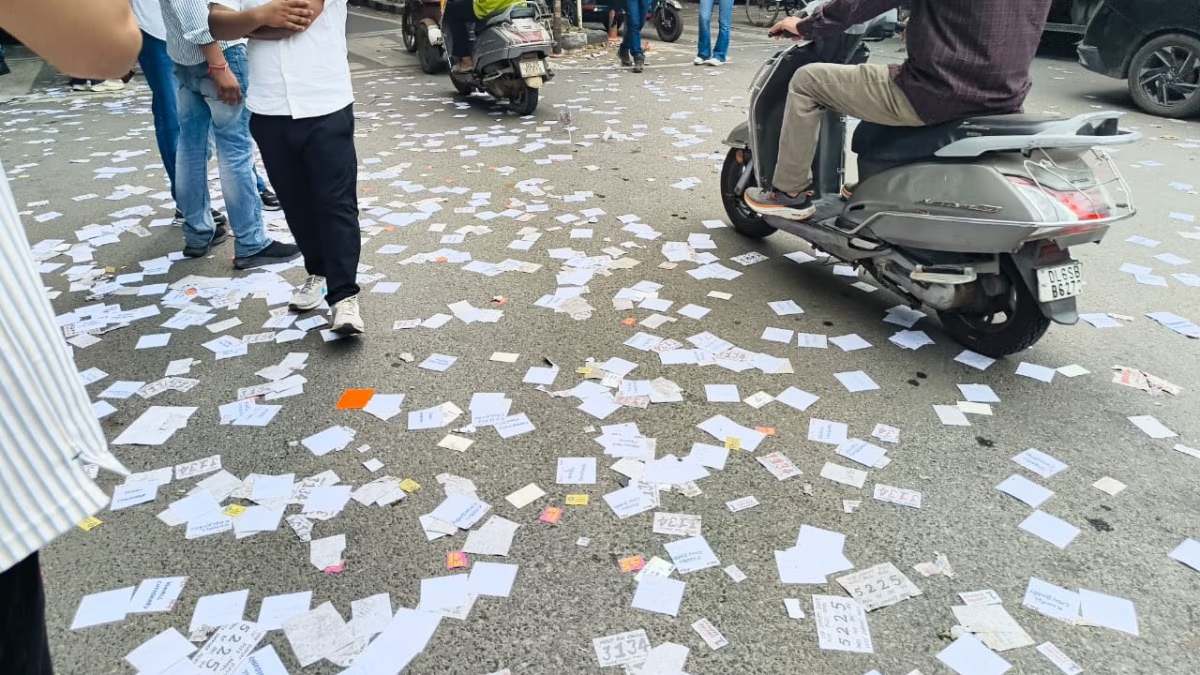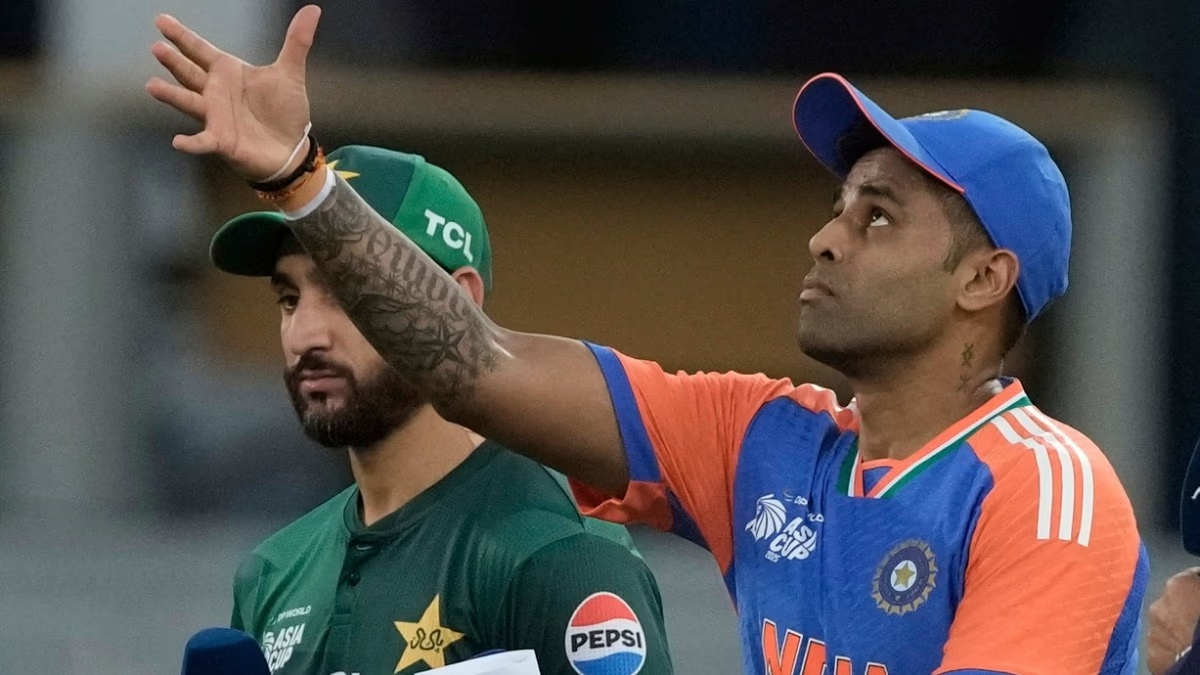The paper for the recruitment exam of Review Officer and Assistant Review Officer, conducted by the Uttar Pradesh Public Service Commission, had reached a paper leak gang in Bhopal eight days before the exam date. This gang, including mastermind Rajeev Nayan Mishra and four young engineering graduates, got the paper from the printing press in Bhopal. UP STF has arrested six people involved in the RO/ARO paper leak case, including the mastermind Rajeev Nayan Mishra who was already in prison, his close associates Subhash Prakash, and Vishal Dubey, but a significant female member of this gang remains at large.
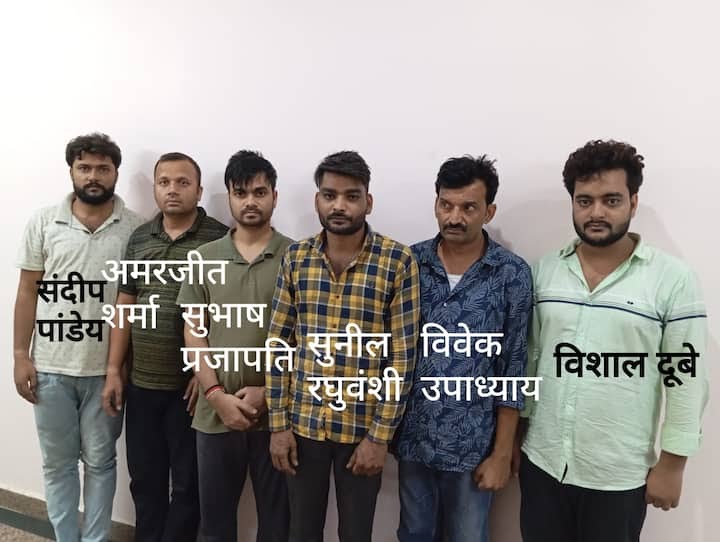
Source: aajtak
Leak Originated from Two Separate Locations
UP STF disclosed that the paper was leaked from two different places: firstly, from the Bhopal printing press that printed the paper, and secondly, from an exam center in Prayagraj where the paper arrived on the morning of the exam day but was leaked before the examination started.
The UP STF had already sent 10 accused involved in the paper leak network from the examination center to jail, including the administrator of the exam center at Bishop Johnson Girls' School in Prayagraj, Vineet Yashwant. It is said that when the paper arrived at the center at 6:30 AM on February 11 from the treasury, Kamlesh Kumar Pal aka KK, a member of the leaking gang, clicked pictures of the paper with his mobile phone and leaked it.
As UP STF arrested the six individuals responsible for procuring the paper from the Bhopal printing press, the entire network was uncovered, leading to multiple crucial revelations. The mastermind, Rajeev Nayan Mishra, after his release, had started living in Bhopal again. Rajeev Nayan Mishra, Subhash Prakash, Vishal Dubey, and Sunil Raghuwanshi are all engineering graduates. Vishal Dubey and Sunil Raghuwanshi studied Mechanical Engineering together between 2014 and 2017.
Subhash Prakash started working in a private engineering college after completing his engineering studies. Rajeev and Vishal Dubey, post their BTech, began arranging admissions for students in engineering colleges. It was during this admissions business that Rajeev Nayan Mishra met Subhash Prakash.
Vishal Dubey learned that his engineering classmate Sunil Raghuwanshi was working in the Bhopal printing press. Upon telling Rajeev, he instructed Vishal to remain in contact with Sunil and prepare him to leak papers for money.
Eventually, a paper arrived to be printed, and Sunil Raghuwanshi, lured by promises of quick money, agreed to join the network. In the last week of January, Sunil informed that there was a paper comprising 140 and 60 questions, respectively. Vishal Dubey conveyed this to Rajeev Nayan Mishra and Subhash Prakash.
Considering the number of questions, they deduced that it was indeed the paper for the Review Officer recruitment exam.
12 Million Rupees Agreed Upon for the Paper
Once the paper was secured, candidates began to be gathered, and on February 8, 2024, all candidates were assembled at Hotel Komal in Bhopal. Rajeev Nayan Mishra decided to sell the paper to each candidate for 12 million rupees. On February 8, Vishal Dubey, accompanied by his friend Sandeep Pandey, reached the hotel. Sunil Raghuwanshi arrived at the hotel with six copied sets of the question paper. Vivek Upadhyay and Amarjeet Sharma brought the candidates to the hotel, and Subhash Prakash arrived with guides and books to solve the questions for the candidates.
Subhash Prakash then photographed the question paper with his mobile phone from the hotel and sent it to Rajeev Nayan Mishra. In a greed for more money, Rajeev Nayan Mishra distributed the paper to other paper leak networks in Prayagraj and Delhi. This secondary network included Dr. Sharad Patel, Saurabh Shukla, Amit Singh, a dismissed constable from the UP police, Arun Singh, Kameshwar, Ravi Atri, and Pushkar.
If the Paper Had Not Been Leaked, Subhash Would Have Become a Review Officer
Subhash Prakash himself had appeared for the RO/ARO recruitment exam in Varanasi on February 11. STF had managed to procure the booklet filled by Subhash Prakash during the exam. An officer associated with the investigation suggested that if the paper had not been leaked, Subhash Prakash would have easily passed the exam and become a Review Officer.
